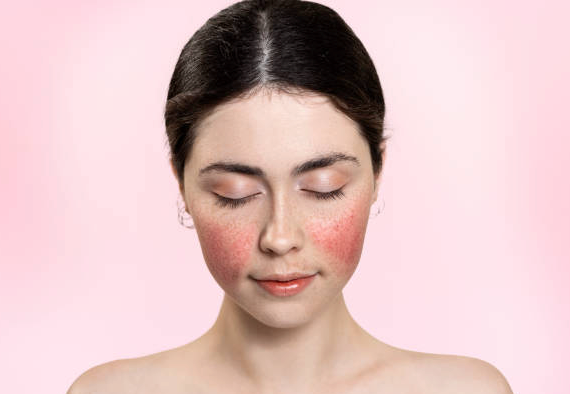Rosacea - The Culprits that Trigger and Cause it

Rosacea is a common skin condition that affects millions of people worldwide. It causes redness, flushing, and visible blood vessels on the face, along with acne-like bumps and a burning sensation. Rosacea can be frustrating, and it can be challenging to determine what triggers it. However, there are some known causes of rosacea that should be avoided to prevent flare-ups. In this article, we will discuss the common triggers of rosacea and some steps you can help take to manage this condition.
1. Food Triggers:
One of the most common triggers of rosacea is food. Spicy foods, hot beverages, citrus fruits, tomatoes, chocolate, and alcohol are some common triggers that can cause flare-ups in people with rosacea. If you are experiencing rosacea symptoms, keep a food diary and avoid foods that trigger your symptoms, and opt for a nutrient-dense, low-inflammatory diet.
2. Environmental Triggers:
Environmental factors such as extreme temperatures, high winds, and humidity can cause rosacea symptoms to worsen. These triggers may cause flushing, redness, and dry skin. To avoid environmental triggers, use a broad-spectrum sunscreen before heading outside, avoid hot baths or showers and keep your skin moisturized with fragrance-free lotions.
3. Skincare Triggers:
The wrong skincare products can trigger or worsen rosacea symptoms. Look for products with natural, gentle ingredients that are formulated to support and soothe your skin. Avoid using harsh skin care products with high concentrations of alcohol, retinoids, and alpha-hydroxy acids (AHAs). These products can irritate the skin and cause rosacea flare-ups.
4. Stress and Emotional Triggers:
Stress is a significant trigger of rosacea as it causes your nervous system to release a cascade of hormones and chemical mediators that can worsen rosacea symptoms. To manage stress, we recommend practices such as meditation, yoga, deep breathing exercises, and mindful walking to soothe your mind and body.
5. Genetics and Hormones:
Several studies have linked rosacea with genetics and hormones. If you have a family history of rosacea, you may be at an increased risk of developing this condition. Hormones can also affect the severity of rosacea symptoms. Women are more likely to experience flare-ups during pregnancy or around their menstrual cycle. Talk to your doctor about hormonal treatments that can help manage your symptoms.
6. Best ingredients to use for rosacea:
ALA (Alpha Lipoic Acid) and Azelaic are the gentle ingredients that help with redness and healing the skin.
Rosacea can be challenging to manage, but by avoiding known triggers, you can reduce the severity and frequency of outbreaks. It is essential to take care of your skin, identify your triggers and maintain a healthy lifestyle to keep your skin looking and feeling its best. If you are struggling with rosacea, we recommend seeking professional advice from an esthetician who can suggest a customized treatment plan that suits your needs.
If you are new to Vasseur Skincare or need help choosing the right skincare for you, click here to look at our helpful skincare guide or here if you wanted to schedule a consultation with our Vasseur Skincare team members and they will help you find the right products for your specific needs.
Leave a comment
Comments will be approved before showing up.
Also in Education
Copper Serum and Red Light Therapy: Your New Skincare Power Duo
Learn how combining copper peptide serum with red light therapy can boost collagen, reduce wrinkles, and enhance your skin's health for radiant results.
Green Tea Serum & Red Light Therapy: The Ultimate Skin Duo
Discover how combining green tea serum with red light therapy can boost collagen, fight aging, and give you radiant skin. Learn how to use them together.
Boost Red Light Therapy with Copper Peptide & Green Tea Serums
Learn how to combine red light therapy with copper peptide and green tea serums to enhance collagen production, reduce wrinkles, and achieve radiant skin.